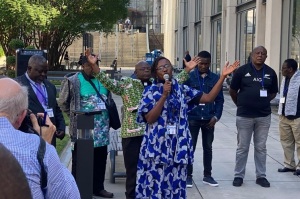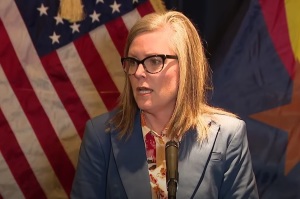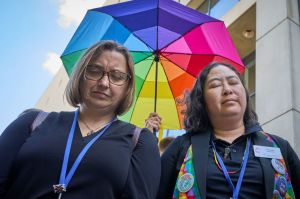Young People Play Key Role in Ministry to Former Soviet Union
Peter Deyneka Russian Ministries is on a mission to saturate the former Soviet Union with the Gospel of Jesus Christ, and they are doing so through the creativity and passion of young Christians.
Sergey Rakhuba, president of Russian Ministries, was born and raised in the Ukraine when it was still part of the Soviet Union.
"In Soviet Union it used to be one big empire, with its own religion – which is called atheism ... All the ideology was built around that," he told The Christian Post on Tuesday.
After the Iron Curtain fell, suddenly the countries that had been a part of the union were left scrambling to find their own identities. As a result, Rakhuba says, each of these nations now has its own set of issues relating to religious freedom today.
While the Ukraine is somewhat easy to access for evangelicals, for example, the Russian Orthodox Church holds a "monopoly" in Russia, making it difficult for evangelicals to do ministry there. Missionaries flocked to Russia 20 years ago, Rakhuba says, but when Vladimir Putin came to power many of them weren't permitted to stay because he had given the Orthodox church a great deal of influence.
"Orthodox churches are given all the power. In politics, basically, they enjoy this comfortable relationship with the Kremlin, when evangelicals are very much in the background," said Rakhuba.
Christians who lived under the communist regime knew persecution as a part of their lives, so when the Soviet Union collapsed they were unsure how their newfound freedom should affect their approach to ministry. To make things even more difficult, at the time they had no seminaries that could train new church leaders.
So because of the difficulties some foreign missionaries have faced in accessing the former Soviet Union, and because the old way of doing evangelism under communist rule is now outdated, Russian Ministries has turned to young Christian nationals to reach a region in need.
"If you provide training for a young leader who takes the baton and ... who starts building on the faithfulness of a previous generation who endured persecution, oppression, etc. ... in a new way, in a more effective, strategic way, they will continue spreading the Gospel," said Rakhuba.
These new methods of evangelism, beginning with the ministry's School Without Walls (SWW) program, are reaching hundreds of thousands of people throughout the former Soviet Union. In the 2010-2011 school year, over 2,000 young people attended SWW classes to learn what it takes to be a leader in the church, and as a result about half a million people were touched by their outreach efforts.
Currently, SWW students are working to reach thousands during the Union of European Football Associations (UEFA) Euro 2012 soccer tournament, which is being co-hosted by the Ukraine and Poland.
Russian Ministries is working with The Gideons International in Canada, for example, to distribute 100,000 New Testaments during the tournament. These New Testaments will be distributed in major cities where some of the soccer matches are being held – including Kiev, the capital of Ukraine – and also in smaller cities where young people have organized community activities.
SWW students are also using the tournament as an opportunity to host soccer camps, where every child can play the game but also receive a Bible, a New Testament or a pamphlet explaining the Gospel.
"We've been doing summer camps since Soviet Union collapsed, because summer camps is still the most effective summer ministry ... but this year it's a special year for the Ukraine because of all of these games," said Rakhuba.
Another creative way Russian Ministries evangelizes is through the occasional flash mob, a planned song, drama or dance performed by a group of people in a public place that appears to be done spontaneously. After the flash mob performs and draws a crowd, they then recite the Gospel message, pass out literature and invite people to join their churches.
In coming months, Russian Ministries is focusing on developing Christian professionals and showing them how important their role is in connecting Christianity to the rest of society. Under the Soviet regime, Rakhuba says, Christians were not allowed to study at the university level, so after its downfall Christian doctors, lawyers and teachers were scarce.
At one point, he only knew of two or three Christian doctors in the entire region, but now there are hundreds. Two months ago, a forum was held in the Ukraine that was attended by over 500 Christian medical workers, and Rakhuba hopes to see similar gatherings of lawyers and educators happen soon. There are also hundreds of Christian university students who, once they graduate, could have a powerful impact on the region.
"I see that the need in the former Soviet Union is [greater] than ever before, and that's in equipping and providing training to the next generation," said Rakhuba. "This is the critical time now, and I believe that this area can become a source ... for the world in terms of providing ... staff for mission organizations."




























